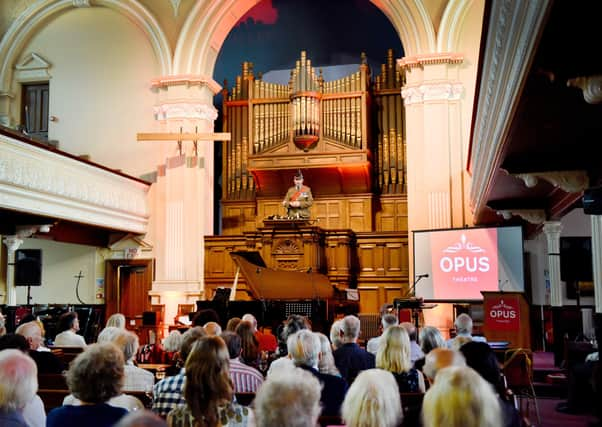What impact will this virus have on our artistic life?


Famously The Windmill never closed, and Myra Hess played throughout the war at the National Gallery.
But it seems the coronavirus has done what war could not achieve, and gradually closed down all the arts.
Advertisement
Hide AdAdvertisement
Hide AdAs I was preparing this piece for publication on Monday evening I received an email from English National Opera, followed rapidly by one from the Royal Shakespeare Company, to say that all their theatres were closed from that point on until further notice. There has certainly not been anything like this in living memory, and one has to search far back in history to find any comparable time. The plague closed the playhouses, but one suspects that local pubs carried on regardless or did so until overtaken by sickness. The Puritans closed the theatres on moral grounds but this did not last long. We are in an unprecedented situation.
Its effect on us here on the South Coast is likely to be severe. Over the past few years we have seen a rapid increase in the range and quality of music-making in Hastings, with the expansion of the work of Hastings Philharmonic, the establishment of a fully professional orchestra, the opening of Opus Theatre with one of the finest pianos in the South East of England, the establishment of the Hastings International Piano Festival, to say nothing of the myriad choirs and theatre groups which rehearse every week across the town.
What impact is the spread of coronavirus having on the artistic life of Hastings and how are groups dealing with it, not just in terms of immediate rehearsals but in longer term planning?
Part of the difficulty has been the frustration of not knowing what to do as advice was unclear. At the beginning of the week I spoke to Polo Piatti about the situation at the Opus Theatre. He said: “Unfortunately, we are waiting from some form of clarification from government as to know our civic and legal obligations at the moment. We have been trying to obtain some clarity of these issues for at least a week but without success – and we know we’re not the only venue experiencing this.”
Advertisement
Hide AdAdvertisement
Hide AdBy Tuesday morning it was all too clear that events would have to be cancelled, and future plans put on hold. One of the most important of these is the planned world premiere of Polo’s multi-faith oratorio Libera Nos, which is the culmination of London Mozart Player’s first year in residence. Though the event is due to be staged on June 13, which is at the end of the 12 weeks of isolation requested by the government, it makes no allowance for rehearsals prior to the event.
Many choirs have cancelled rehearsals. The regular Good Friday performance of Stainer’s Crucifixion, bringing together singers from many church choirs, has been abandoned as joint rehearsals are potentially dangerous and by Easter churches may have to cancel services anyway.
Potentially, the larger threat is not from immediate closure of venues, which will still be there at the end to be reopened, but the loss of an audience which has been painstakingly built up over many years and could, over the summer and early autumn, dwindle away so that we have to start all over again. We must hope it doesn’t happen – but what steps are we taking to ensure out cultural life is as vibrant post-coronavirus as it has been up to now?